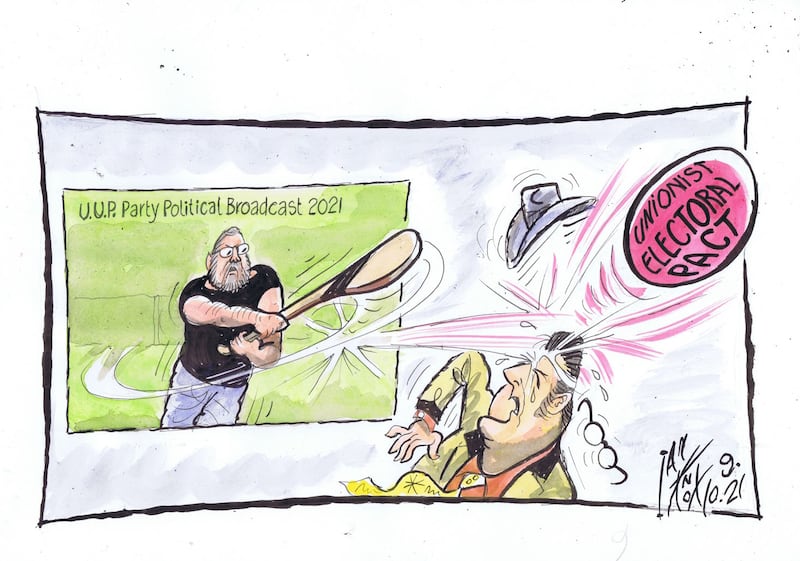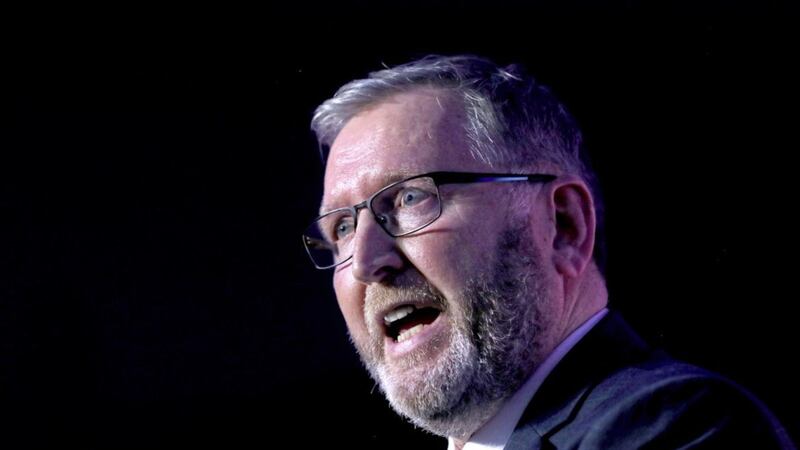TWENTY years ago the Ulster Unionists lost five MPs and a raft of councillors as the party suffered a DUP-led backlash over its role in the Good Friday Agreement. The electoral rot set in and within a couple of years the party that had dominated politics in Northern Ireland since its foundation was eclipsed by a more hardline rival.
In the time since, the UUP’s response to this existential setback has been confused and inconsistent. Current leader Doug Beattie is his party’s sixth since David Trimble resigned in 2005. The former soldier’s predecessors have swung from the centre ground to the right and back again, unsure who or what they represent. Various strategies failed to reverse the decline – the ill-advised link-up with the Tories, the short-lived ‘vote Mike get Colum’ approach, and Tom Elliott’s efforts to take the party back to the middle of the last century.
But after two decades of what appeared to be terminal decline and an unspoken fear that it would be swallowed up by the DUP, the Ulster Unionists are bouncing back. This new lease of life is being driven by the aforementioned Mr Beattie, a politician whose previous military career gives him impeccable credentials as a unionist leader.
Meanwhile, his socially liberal outlook and pragmatism on the protocol make the Upper Bann MLA a more amenable prospect to voters who’ve drifted to Alliance or even those small-U-unionists who tend not to vote because they feel their views aren’t represented. At the weekend conference – Doug Beattie’s first and the party’s first since 2018 – even the once-obligatory in-your-face Union flag motifs and red, white and blue livery had been noticeably toned down. There’s also a clear drive to redress the party’s lamentable dearth of female MLAs and councillors.

While his opposition to Irish language – and Ulster Scots – legislation arguably reflects a more traditional ideology, polls suggest the new leader is enticing the middle ground rather than alienating it. The DUP’s record in championing Brexit, its help in delivering the protocol, and the subsequent bloodletting has also helped the smaller unionist party gain ground.
When this is coupled with the performance of the Ulster Unionist health minister, who one conference attendee suggested has a popularity rating “up there with Santa Claus”, the hope is of an electoral renaissance. The polls say there’s been a ‘Beattie bounce’, while Robin Swann is emerging from the pandemic having been mostly lauded throughout.
But do these two swallows make a summer? The Ulster Unionists have always been a broad church yet they are by nature a conservative bunch. Too much upheaval too soon could rupture the ranks. Yet if they stand candidates who represent the old guard, centrists will choose to go elsewhere
The leader was given an enthusiastic and warm welcome from the 300-odd delegates at Belfast’s Crowne Plaza hotel though you can’t help wonder if many among the disproportionately greying audience were bemused by the pronounced nod towards all things modern.
Alongside a short performance called All Change and Mike Nesbitt’s interpretation of the George V’s speech at the opening of the Northern Ireland Parliament, the conference’s centenary celebrations saw an Irish dancing troupe entertain the crowd, a signal that the ‘nU-UP’, like its leader, is comfortable with many aspects of Irishness.
Doug Beattie’s greatest challenge as he seeks to take his party forward is whether he has enough depth in his squad. The party that at the time of the Good Friday Agreement had ten MPs, now has little more than a handful of figures who would be known outside their own constituencies. The leader talks optimistically of being first minister and of redefining unionism. He’s strong on aspiration but so far lacks the seats to fulfil it.
As the election approaches, the accusations of weakness and of Lundy-ism are expected to get louder, as other unionist parties seek to ramp up division while paying lip service to unionist unity. The former soldier will need to remain calm under fire and consistent in his calls. Arguably the twin decisive factors are whether the team can match their leader’s example and if the electorate is actually ready for Doug Beattie’s brand of unionism.








